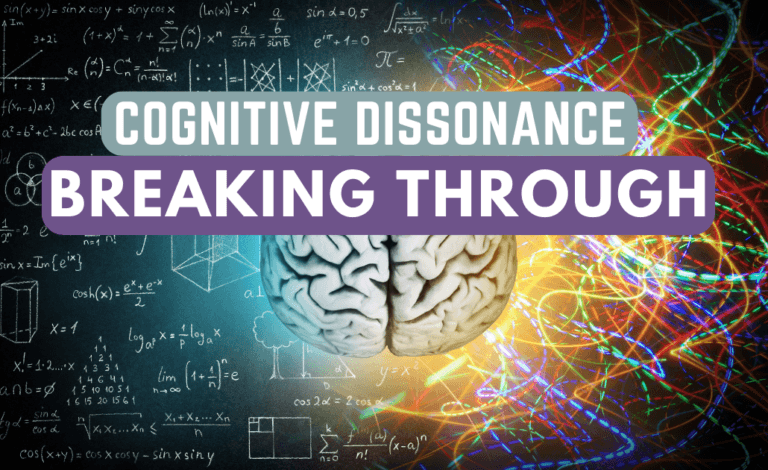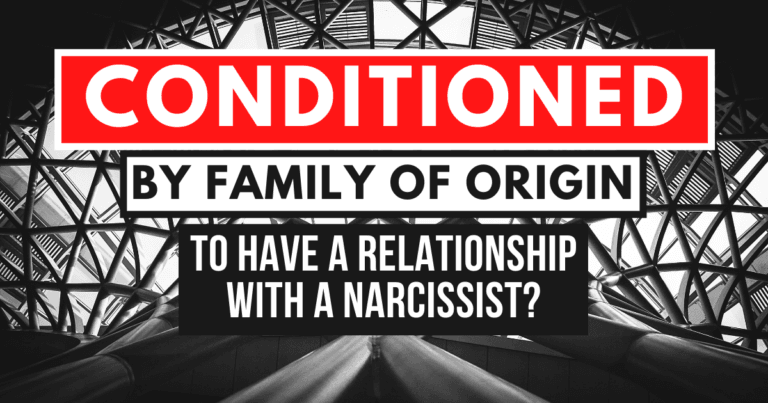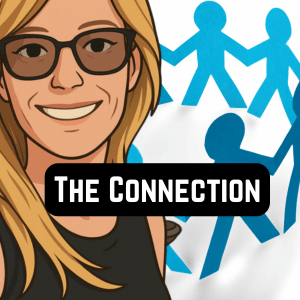How the Pick Me mindset stalls ambition, undermines identity, and reinforces systems of control
Welcome back to the Narcissistic Abuse Recovery Podcast. I’m Lynn, your host.
Before we get into today’s topic, I want to take a moment to reference the previous episode. We unpacked the roots of the Pick Me Culture. We explored how this mindset isn’t new. It’s something passed down through generations. We talked about the historical forces that taught women to find their value in being desirable. The social conditioning that shaped us to wait to be chosen. And how identity was built around likability instead of authenticity.
That episode lays the groundwork. But this one stands on its own too.
What is the Cost of Being Pickable?
Today, we’re taking that foundation and looking at the real-life consequences of living under this pattern. How it affects our careers. Our relationships. And the very way we see ourselves.
We talked about how girls are raised to wait. How being chosen becomes the goal. And how identity is molded around what makes us desirable instead of powerful.
Today, we’re picking up where we left off.
We’re going to talk about what this mindset actually costs us. Not just emotionally. But professionally. Socially. And personally.
Because the Pick Me mindset is not just a quirky trait or a phase. It’s a coping strategy that turns into a pattern. And that pattern ends up holding us back in every area of life.
It doesn’t just stop us from reaching our goals. It limits how we see ourselves and what we believe we’re capable of. It creates hesitation where there should be confidence. Silence where there should be expression. And conformity where there could be innovation.
This mindset can shape our decisions. Influence the relationships we stay in. And even determine whether we pursue leadership, creativity, or personal dreams.
It’s not just a mindset. It’s a framework that influences how much space we allow ourselves to take up in the world.
Let’s talk about what we’ve lost because of it.
Listen to the Podcast Episode Here
CAREER COSTS AND AMBITION SUPPRESSION
Let’s start with work.
When women are taught to be agreeable. To be liked more than respected. It doesn’t just influence their personality. It shapes their career choices. And limits their professional growth.
Some women hesitate to ask for a raise. Not because they don’t deserve it. But because they don’t want to seem “too much.”
Too demanding. Too aggressive. Too ambitious.
That internal voice—the one that says “don’t rock the boat”—that’s the Pick Me mindset whispering.
It says: Stay grateful. Be humble. Don’t ask for more.
And that voice keeps women in positions far below what they’re capable of. It leads to playing small in rooms where they’re more than qualified to lead. It erodes confidence. And over time, it makes us question if we were ever good enough to begin with.
Watch the Video Here
RELATIONSHIPS AND EMOTIONAL LABOR
Now let’s talk about relationships.
The Pick Me mindset doesn’t just show up in dating. It shows up in how we relate to everyone—partners, friends, even family.
When you’ve been trained to earn approval. To be chosen. To be easy to love. You start to carry the emotional weight in every relationship.
You become the planner. The forgiver. The one who accommodates others before yourself. The one who understands everyone else’s feelings but struggles to express your own.
You might think, “This is what being a good partner looks like.”
But what it often becomes is a one-sided emotional exchange. Where your needs take a backseat. And your silence becomes the currency that buys peace.
It’s exhausting. And it’s not love. It’s labor.
FRIENDSHIPS AND COMPETITION
This culture doesn’t just hurt us individually. It damages our ability to trust and connect with other women.
When we’re taught that being picked is the prize. We’re also taught that other women are the competition.
We get suspicious. Jealous. Guarded. We keep emotional distance. Because somewhere deep down, we believe we’re all fighting for limited space.
And that mindset kills sisterhood.
It keeps us from being vulnerable with other women. From rooting for each other. From showing up honestly and without performance.
But here’s the truth. Women are not your rivals. They’re your mirror.
And when we stop trying to win in a game we didn’t agree to play. We can finally start to support each other without fear.
THE LOSS OF SELF
This mindset takes more than your time and energy. It takes pieces of your identity.
You begin to wonder. Who am I when I’m not performing? When I’m not proving I’m worthy of love or praise?
Because when your sense of self is built around being chosen. What happens when you’re not? What happens when you’re alone? Or when you stop trying?
This is where the pattern becomes more than just people-pleasing. It becomes a complete reshaping of identity.
But what’s underneath all this pleasing? Why do so many women feel compelled to over-accommodate? To quiet their voices? To anticipate others’ needs before their own?
At its root, people-pleasing is often a survival mechanism. It can come from growing up in environments where approval meant safety. Maybe it was a home where love had conditions. Or where conflict wasn’t allowed. Or where being good, quiet, helpful, or needed was the only way to be noticed.
Over time, this trains you to read the room before you speak. To adjust. To perform. To keep the peace—even when it comes at the expense of your own truth.
You stop living from within. And start reacting to the expectations of everyone around you.
That constant adjustment. That loss of personal clarity. That’s where the real damage happens.
It’s subtle. And it’s soul-draining.
The Pick Me mindset teaches women to see themselves through someone else’s lens. And to adjust accordingly. Always editing. Always proving. Always shrinking.
BREAKING THE CYCLE
So where do we go from here?
We start by calling it what it is. We name it. We examine where it shows up in our lives. We notice when we start to contort ourselves to be more likable. Less loud. More agreeable.
We ask ourselves different questions.
Who am I if I stop waiting to be picked?
What do I actually want—separate from who I’m supposed to be?
What version of me exists when I stop editing myself to fit into someone else’s mold?
And maybe this too. Why is there such a deep need to perform for others in the first place? What am I actually chasing? Why do accolades mean so much? Is the end goal really to be validated by a man just so I can feel like I finally matter?
It sounds extreme. But this is how deeply the conditioning runs.
It teaches us to place men in the position of authority. Like they get to decide our value. Like they hold the stamp of worthiness.
And when we internalize that idea. We don’t just seek love. We seek permission to feel valuable.
It’s all backwards. And once we realize that. We can begin to unravel it.
Because maybe the need to perform isn’t just about being seen or chosen. It’s about justifying all the emotional labor we’ve been conditioned to do for free.
Amazon Affiliate Disclosure: We are an affiliate with Amazon, if a purchase is made using our links, we may receive a commission at no additional cost to you.
Want to reclaim your time and financial freedom? Financial Independence Retire Early gives you 23 proven steps—master compound interest, embrace frugal strategies, calculate your retirement date, and launch side hustles that fuel real passive income. Learn to overcome setbacks, shift your mindset, and break free from the 9-to-5 grind. Grab your copy on Amazon through our affiliate link and start changing your future—one simple step at a time. Get it today.
And that unpaid labor? It doesn’t just cost us energy. It costs us money.
When we overextend ourselves in the home, in relationships, and even in the workplace without asking for compensation or recognition. We’re participating in an invisible economy that rewards silence and penalizes self-advocacy.
Whether it’s taking on the office birthday duties. Managing emotional dynamics on teams. Or carrying the domestic load behind the scenes—this work has value. But we’re rarely taught to assign it any.
Related: Pick Me Culture – Are Women Still Expected to be Chosen?
And let’s go even deeper.
Women are often socialized to avoid talking about money altogether. Whether that’s with partners, employers, friends, or even themselves.
We’re conditioned to believe that being too focused on finances is unseemly. Greedy. Or unfeminine.
So we shrink. We stay quiet. We don’t negotiate.
We’re not taught to ask for raises. We’re not taught to build wealth.
Conveniently—or perhaps even strategically—these financial tools are often excluded from the emotional recovery journey. And it’s not by accident.
Because women who are emotionally empowered but financially dependent are still not free.
Empowerment without financial independence is partial recovery.
To be whole, we have to start naming the cost of emotional labor—not just in energy, but in currency.
We need to teach women how to recognize their unpaid contributions. Ask for compensation. Build wealth. And take up financial space.
It’s not too much. It’s overdue.
That’s the beginning of freedom. And it doesn’t come easy. But it comes.
Cost of Being Pickable Cost of Being Pickable Cost of Being Pickable Cost of Being Pickable Cost of Being Pickable Cost of Being Pickable Cost of Being Pickable Cost of Being Pickable Cost of Being Pickable Cost of Being Pickable Cost of Being Pickable Cost of Being Pickable Cost of Being Pickable Cost of Being Pickable Cost of Being Pickable Cost of Being Pickable






